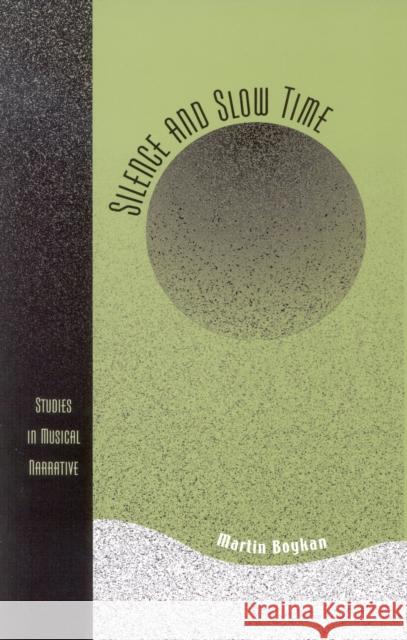Silence and Slow Time: Studies in Musical Narrative » książka
Silence and Slow Time: Studies in Musical Narrative
ISBN-13: 9780810847514 / Angielski / Twarda / 2004 / 240 str.
Time is of the essence in music because the ear can only perceive sequentially-one thing at a time-unlike the eye, which is capable of panoramic view. Silence and Slow Time proposes a way of thinking about music that is faithful to the experience of playing or listening during a real performance. Boykan argues against the common assumption that thematic relationships automatically insure musical coherence, because the repetition or the transformation of a theme is only meaningful if we consider when it occurs. This argument is developed through a close reading of passages from the full range of Western music. Analyses of dramatic narratives in Haydn, Beethoven, Schubert, and Chopin reveal a richness that can only be captured if thematic or voice-leading relationships are placed within a temporal context. Other kinds of narrative are explored in a Renaissance motet, and in the music of Wolf and Debussy at the end of the 19th Century. The book devotes several chapters to the great innovators of the 20th Century, and concludes with a detailed study of the Schoenberg Trio that traces its thematic and harmonic process to suggest a somewhat oblique relation to the apocalyptic moment when it was composed.











